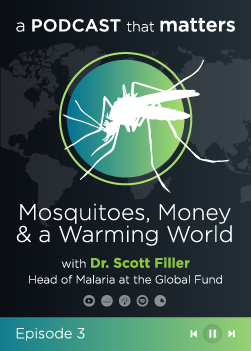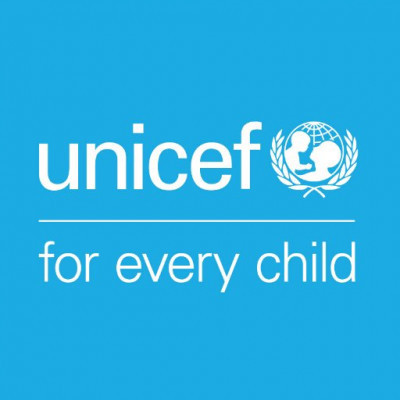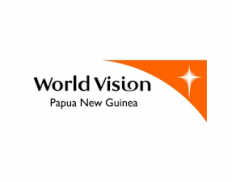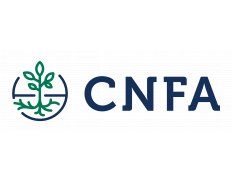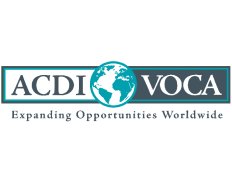Details
Description
Background
The trajectory of violent conflict in Papua New Guinea’ss Southern Highlands and Hela provinces over the last 30 years is concerning. As of end 2017, there were anecdotally 40 separate ongoing internecine conflicts across Hela Province which had led to more than 300 deaths and an estimated 100,000 people displaced without accounting for the extent of human rights abuses including gender-based violence and sorcery accusation-related violence and the entrenched marginalization of women and youth. Exacerbated by weak local governance, these conditions pose a multi-dimensional challenge to economic and human development in both provinces. This highly fragile situation places incredible pressure on the realization of human rights, social and structural stability, and human development.
Compounding this situation, women in the Highlands are particularly exposed to disproportionate and increasing risk of climate-induced conflicts due to their community roles coupled with heightened vulnerability of local communities arising from climate change and variability. Through the climate-gender-conflict nexus, UNDP (as lead agency) and IOM will jointly implement gender-transformational conflict prevention interventions that aim to empower women leadership in climate-induced conflict prevention to reduce the risk exposure of vulnerable local communities.
The 18-month PBF/GYPI-funded project (“GYPI Highlands project”) implemented within the framework of the UN’s Highlands Joint Programme (HJP) will empower women leaders as conflict-sensitive community resilience activists through training, sharing best practices, while strengthening inclusive peacebuilder networks advances gender equality. While focused on women’s empowerment, men will also be engaged as well to address women’s needs. Particular attention will be paid to communicating women’s rights, their access to information resources as well as inclusion and leadership in community decision-making.
Targeting high-risk communities, the project will leverage on empowered women leadership to support the enhancement of community resilience in confronting climate shocks while reducing the risk of climate-induced conflicts through the facilitated development of enhanced Community Peace for Development Plans (CPDP) as well as the implementation of priority aspects of individual CPDPs. The project will also be focused on addressing knowledge gaps within the climate-gender-conflict nexus given the recent emergence of such an approach within the prevention agenda with the aim of integration with development of local and provincial frameworks through gendered analyses and assessments, and climate and gender-sensitive peace and security strategies.
Under the GPYI Highlands project, UNDP’s responsibility includes but is not limited to the implementation of the following project outputs.
Delivering training of women community leaders in awareness of climate-induced risks and local approaches/ to mitigate risks
Support community-led establishment of inclusive community civic spaces to facilitate collective decision-making
Conduct of provincial and sub-provincial climate risk assessment in both Hela and Southern Highlands provinces
Support provincial authorities in development of provincial climate and gender-sensitive peace and security strategies with costed provincial action
The project will indicatively target priority locations in Hela and Southern Highlands provinces as identified by the Highlands Joint Programme, with community-level activities in Hela focused on five priority LLGs of Komo Rural LLG, Hulia Rural LLG, Tagali Rural LLG, Hayapuga Rural LLG, South Koroba Rural LLG while in Southern Highlands, Kagua-Erave, Nipa-Kutubu, and Mendi-Munihu districts have been prioritized. However, target communities will be determined through a joint prioritisation process informed by down-scaled provincial and sub-provincial climate risk assessment in both Hela and Southern Highlands provinces.
Duties and Responsibilities
Key Objectives
In this context, UNDP is seeking a consultant to be primarily responsible for the successful initiation of key components of the project, working directly with the project’s other participating UN organization, IOM and in close coordination with the provincial governments of both Hela and Southern Highlands. The Consultant will be expected to work in close collaboration with the Highlands Joint Programme (HJP) Coordinator, the Peacebuilding Specialist (particularly in the context of the ongoing Creating Conditions for Peace and Addressing Conflict and Fragility in the Highlands projects) and relevant programme focal points in UNDP Country Office. In the context of initiating project components, the Consultant will be supported by a Project Admin and Finance Associate.
Duties and Responsibilities
Scope of Work
To achieve the objectives of the consultancy, the tasks of the Consultant will include, but are not necessarily limited to, the following:
Support consultations and engagement with provincial and sub-provincial stakeholders (particularly provincial and local government) in the inception and subsequent implementation of UNDP’s project activities;
Lead design and recruitment of technical expertise to conduct provincial and sub-provincial climate risk assessment in both Hela and Southern Highlands provinces;
Lead the implementing partners identification and onboarding processes, to support:
Training of women community leaders in awareness of climate-induced risks and local approaches/ to mitigate risks
Establishment of inclusive community civic spaces to facilitate collective decision-making
Support project inception including coordination of baseline study;
Contribute to biannual Highlands Joint Programme Steering Committee meetings as required.
Deliverables and Milestone of Payment
Key milestones or deliverables
Duration
Report due (Indicative)
Payment Percentage
Review and Approvals
1st Installment after completing/ submitting the Project Inception Plan - Develop a project inception plan which includes engagement with key provincial and sub-provincial stakeholders and representative communities. Project inception should also include the review of the baseline study findings and the finalization of the report.
12 Days
30 July 2022
20%
UNDP’s Highlands Joint Programme Coordinator
2nd Installment after completing/ submitting the Provincial and Sub-Provincial Climate Risk Assessment Approach - Based on the locally adopted multi-hazard risk assessment methodology coupled with climatic projections and agreed vulnerability indicators, develop and implement a localised approach to identify geographical locations at risk of climate-induced conflict.
24 Days
15 Aug 2022
40%
UNDP’s Highlands Joint Programme Coordinator
3rd and Final Installment after completing/ submitting the Community Resilience Approach - Develop an integrated approach to strengthen conflict and disaster resilience at community-level by leveraging on: Training of women community leaders in awareness of climate-induced risks and local approaches/ to mitigate risks
Establishment of inclusive community civic spaces to facilitate collective decision-making
24 Days
20 Oct 2022
40%
UNDP’s Highlands Joint Programme Coordinator
Reporting and payment terms
The Consultant will work under the direct supervision of the UNDP’s Highlands Joint Programme Coordinator.
Submission of specific deliverables will be completed in accordance with the above schedule unless revised timelines are mutually agreed by UNDP and the Consultant. Acceptance of deliverables will be determined by UNDP’s Highlands Joint Programme Coordinator.
Milestone payments will be made upon submission and acceptance of specific deliverables.
Resources Provided
The Consultant shall provide his/her own office productivity equipment (hardware and software) and baseline mobile connectivity. Where specialised logistics is required in-country, the project shall avail as required based on an agreed activity budget to be developed upon prior approval.
Competencies
Corporate Competencies
Display cultural, gender, religion, race, nationality and age sensitivity and adaptability
Demonstrate/safeguard ethics and integrity
Demonstrate corporate knowledge and sound judgment
A team player and contribute to teamwork
Create and promote open communication in the team, communicating effectively
Create synergies through self-control
Functional Competencies
High level of computer literacy is essential (in particular word processing and presentation software);
Excellent speaking and writing skills in English are necessary;
Basic knowledge of Tok Pisin (Papua New Guinea pidgin) would be a benefit/advantage.
High level planning, organizational and time management skills, including flexibility, attention to detail and the ability to work under pressure to meet challenging deadlines;
Analytical and problem-solving skills of a high order;
Leadership qualities, including the ability to make sound judgment, meet challenges constructively and creatively;
Excellent interpersonal skills, including ability to establish strong cooperative relationships with local community members and leadership;
Ability to quickly adapt to change, and to remain calm under pressure in highly challenging environments; and
Proven cross-cultural communication and the ability to function effectively in an international, multicultural environment.
Required Skills and Experience
Education and Experience
Advanced University degree (Master's degree or equivalent) in political or social science, international development, peace and conflict, conflict studies, disaster risk management, humanitarian action, or related field;
A first-level university degree in in political or social science, international development, peace and conflict, conflict studies, humanitarian action, development economics or related field with additional 2 years of relevant experience may be accepted in lieu of the advanced university degree.
Minimum of five (5) years with a master’s degree OR seven (7) years with a bachelor’s degree of relevant experience in complex settings, peacebuilding, humanitarian affairs, crisis management, political affairs, operational planning and coordination or related field;
Experience in peacebuilding and/or political affairs (in particular within the UN system);
Experience in facilitation and preparation of strategies, development plans, analysis, coordination mechanisms (in particular within the UN system); and
Experience in the Pacific context (particularly Papua New Guinea) is required.
Evaluation
Cumulative analysis
The proposals will be evaluated using the cumulative analysis method with a split 70% technical and 30% financial scoring. The proposal with the highest cumulative scoring will be awarded the contract. Applications will be evaluated technically, and points are attributed based on how well the proposal meets the requirements of the Terms of Reference using the guidelines detailed in the table below:
When using this weighted scoring method, the award of the contract may be made to the individual consultant whose offer has been evaluated and determined as:
a) Responsive/compliant/acceptable, and
b) Having received the highest score out of a pre-determined set of weighted technical and financial criteria specific to the solicitation.
* Technical Criteria weighting; 70%
* Financial Criteria weighting; 30%
Only candidates obtaining a minimum of 49 points in the Technical Evaluation would be considered for the Financial Evaluation. Interviews may be conducted as part of the technical assessment for shortlisted proposals.
Criteria
Points
Percentage
Qualification
10%
Relevant education qualification in political or social science, international development, peace and conflict, conflict studies, disaster risk management, humanitarian action, or related field
10
Experience
60%
Professional experience in peacebuilding and/or political affairs (in particular within the UN system)
20
Proven experience in facilitation and preparation of strategies, development plans, analysis, coordination mechanisms (in particular within the UN system);
30
Experience in the Pacific context (particularly Papua New Guinea)
10
Technical Criteria
70%
Financial Criteria – Lowest Price
30%
Total
100%
Documents to be included when submitting Consultancy Proposals
The following documents may be requested:
Duly executed Letter of Confirmation of Interest and Availability using the template provided by UNDP.
P11 form using template provided by UNDP which indicates all past experience from similar projects, as well as the contact details (email and telephone number) with at least three (3) professional references.
Technical Proposal outlining the proposed methodology and approach for completing all the tasks outlined in the TOR.
Financial Proposal that indicates the all-inclusive fixed total contract price, supported by a breakdown of costs, as per template provided. If an Offeror is employed by an organization/company/institution, and he/she expects his/her employer to charge a management fee in the process of releasing him/her to UNDP under Reimbursable Loan Agreement (RLA), the Offeror must stipulate that arrangement at this point and ensure that all costs such costs are duly incorporated in the financial proposal submitted to UNDP.

